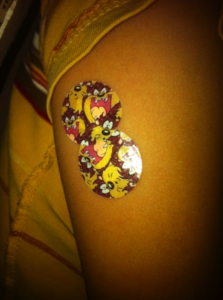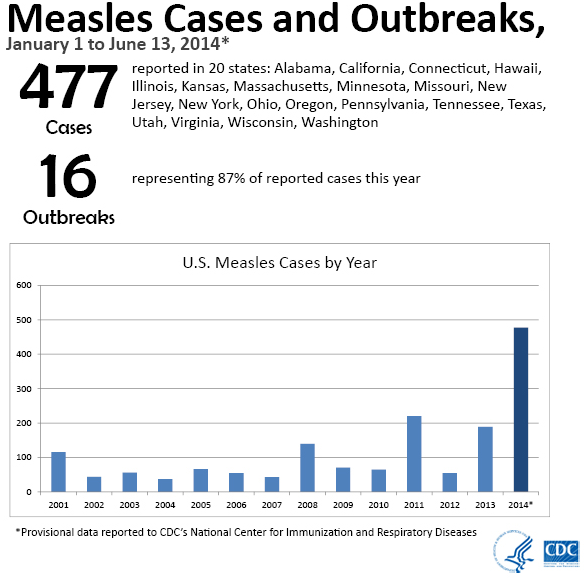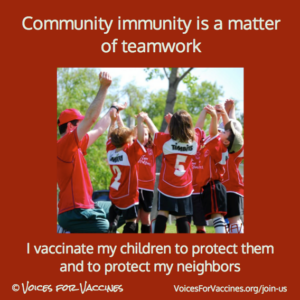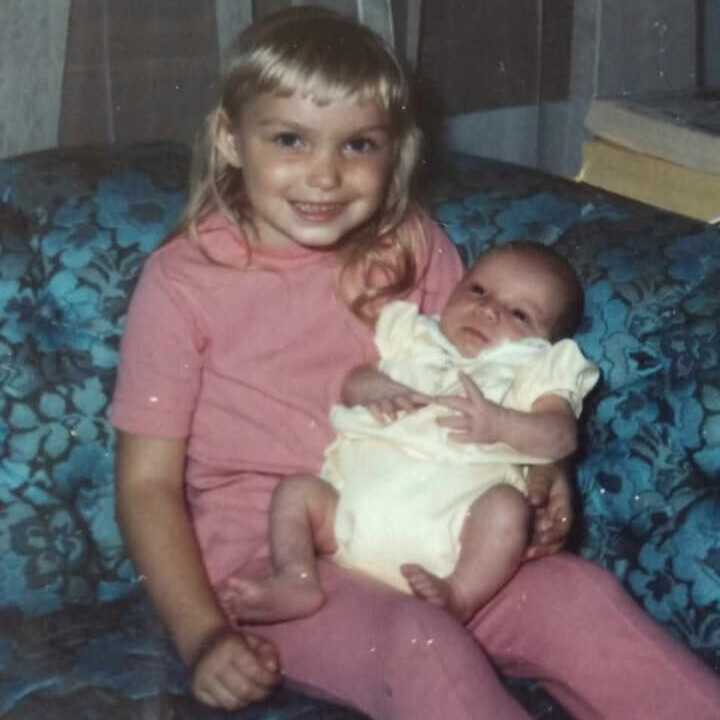As of June 13, we have seen 477 measles cases in the United State this year.
The number of cases is astounding to anyone who pays attention to the news. Here’s what you need to know about measles, the current outbreak, and the MMR vaccine.
- 341 of those cases have been in Ohio. It was brought there by an unvaccinated Amish person who had traveled on a mission trip to the Philippines, where measles is running rampant. The mission worker brought the measles back to a largely unvaccinated Amish community, where it has spread for the last three months.
- The measles cases are occuring largely among unvaccinated people, 85% of whom refused vaccines (or had parents who refused to vaccinate them) for religious or philosophical reasons.
- Measles is incredibly contagious. An infected person may begin by feeling unwell, with a bit of a fever and maybe a cough. Perhaps that person may go someplace public–maybe a pharmacy or a doctor’s office. 90% of those people who come in contact with him and are not immune to measles will contract the disease, and for two hours after he has left, any people who enter that place who are not immune will likely catch it. And they might pass it along before Patient Zero even realizes that his illness is measles. If our Patient Zero lived in an entirely measles-susceptible town, where no one had been vaccinated or had already lived through measles, he would infect fourteen people every day.
- The measles vaccine works. While we are seeing too many cases for the year 2014, keep in mind that before the vaccine was in use:
- 3-4 million people in the US were infected with measles each year
- 500 people lost their lives each year because of measles
- 48,000 people were hospitalized each year
- And as of 2000, the only cases of measles in the United States were brought in from abroad.
- Dr. Paul Offit points out that “we live in a global sea of measles.” We live in a world where measles is a regular occurance, not only in the Philipines, but also in the United Kingdom, France, Ethiopia, and too many other countries to list. Measles is still a scourge in the world, killing 14 people every hour in the year 2012. If we want to keep measles away from home, we have to vaccinate almost everyone at home. (And supporting global measles eradication is a good idea, too.)
For five points of information, I propose five solutions.
 Vaccinate your children, and make sure you have been vaccinated against measles. Being vaccinated is the purest form of advocacy since it strikes a blow against disease itself.
Vaccinate your children, and make sure you have been vaccinated against measles. Being vaccinated is the purest form of advocacy since it strikes a blow against disease itself.- Is your family vaccinated? Let others know! A comment made at the playground during a casual conversation makes vaccinating normal and discussing vaccines socially acceptable. (“Boy, these measles outbreaks are terrible. Glad we are all up-to-date on our vaccines!”) Post photos of your children on social media at their post-immunization ice cream stop (or however else you reward vaccination appointments well done). Whatever you do, just talk about it. Let’s make immunization part of polite conversation again.
- Check to see if your community is protected against measles. Ask your school’s administrators what percentage of students have received the MMR (measles, mumps, rubella) vaccine. Many estimate that to ensure community immunity, ~95% of people in a community need to be vaccinated or have naturally-acquired immunity against measles. How does your school stack up? Let your community know!
- Write about your displeasure with the measles outbreaks and your wish to see everyone in your community protected. Write a letter to editor of your local paper (no local paper is too small). Write to a legislator or governor. Write to anyone who can effect change and who needs to listen to you. If we all speak up, we can make a big difference.
- Make immunization a requirement of traveling to areas where measles outbreaks are occurring. Okay, maybe this isn’t something you personally can do, but it’s something we should start asking our government to do.
The bottom line is this: we don’t have to sit around feeling upset that a disease that is easily preventable is reaching levels we haven’t seen in 20 years. We can act to protect our communities now and to prevent measles from becoming endemic once again.
Karen Ernst is the mother of three fully-vaccinated boys. She lives with her family in Minnesota and is the parent-leader of Voices for Vaccines.





